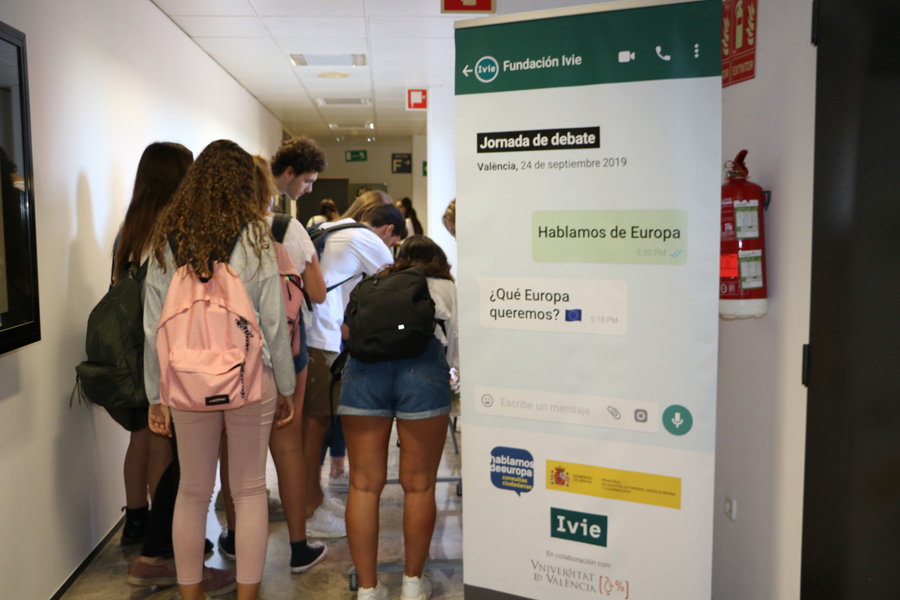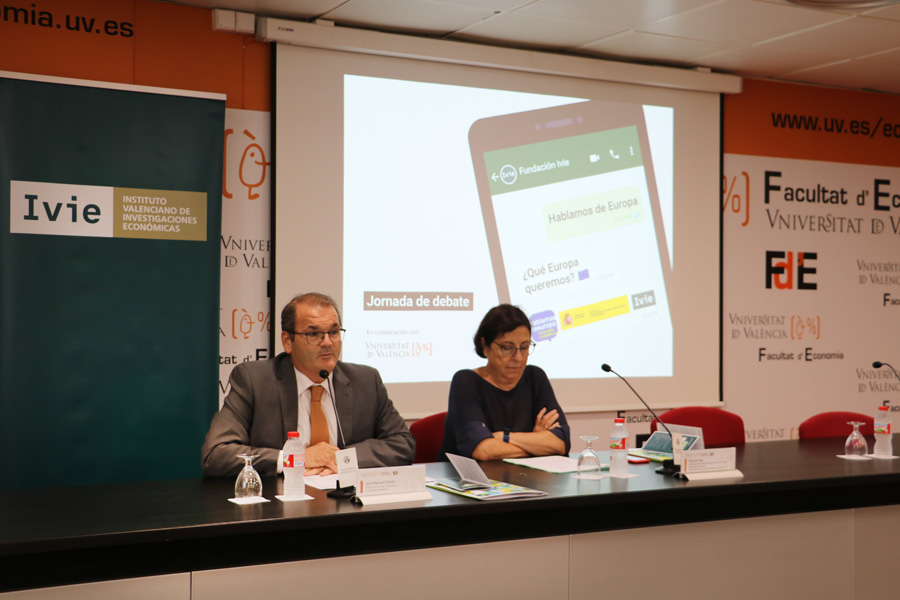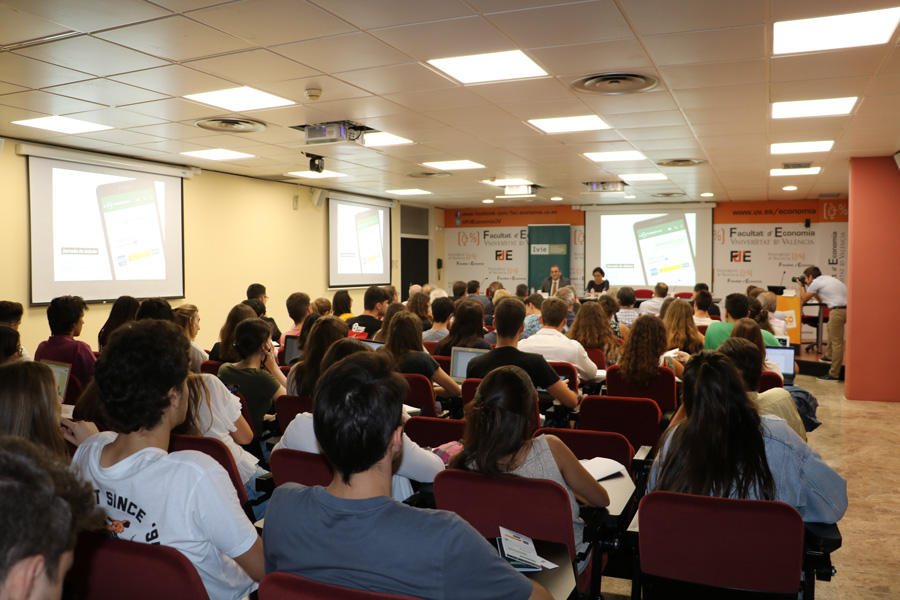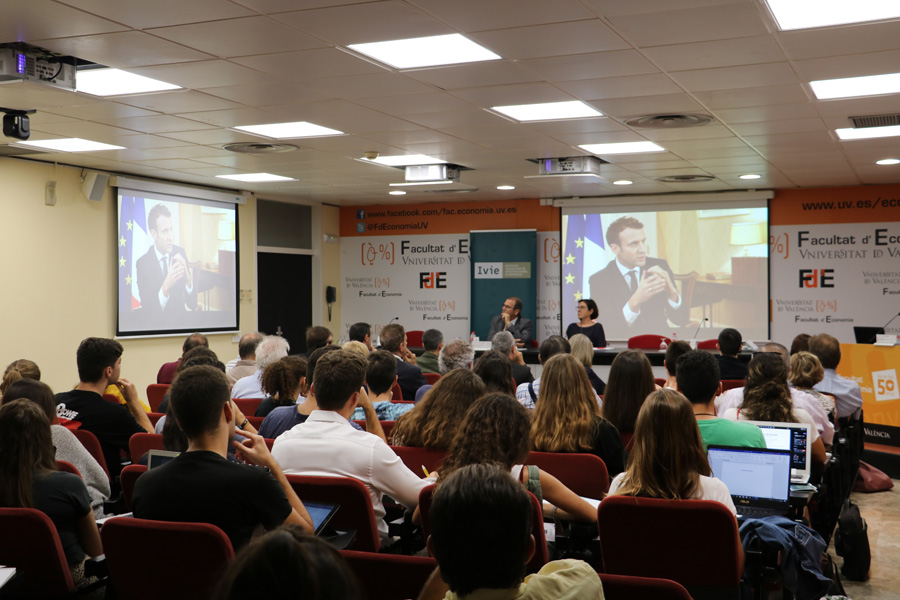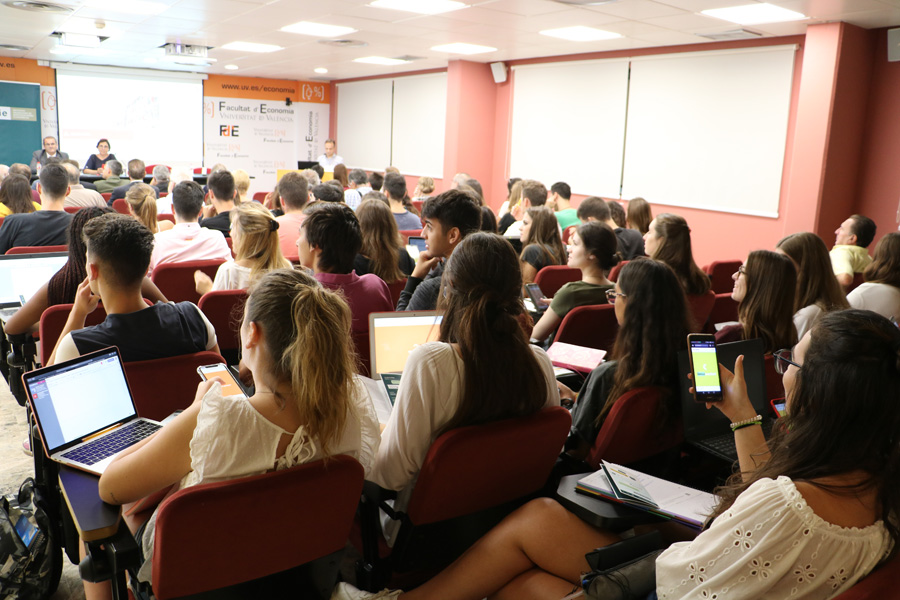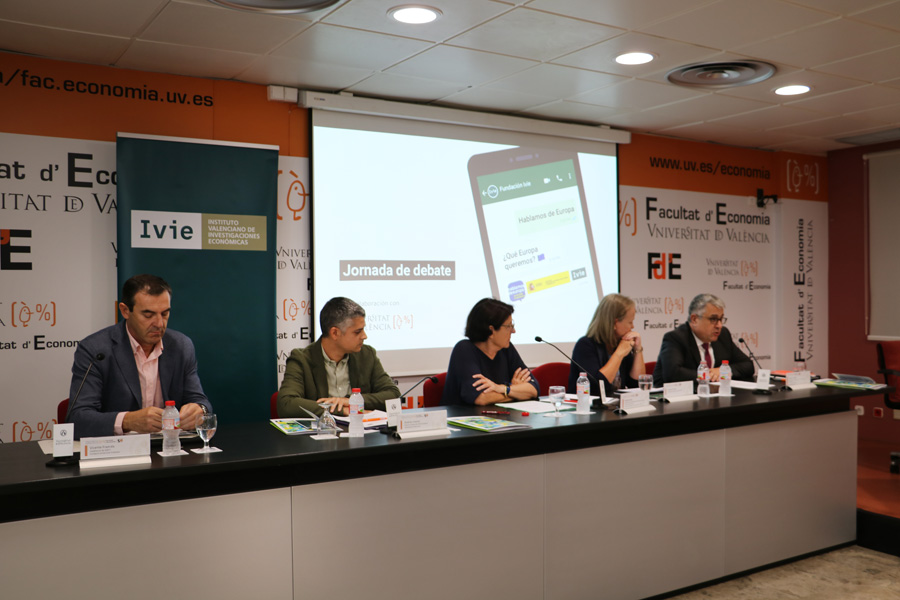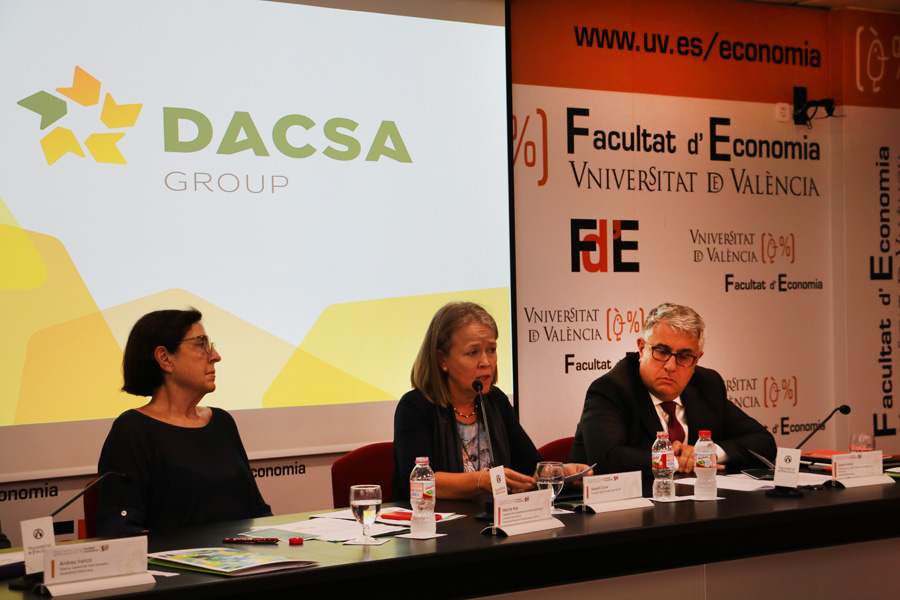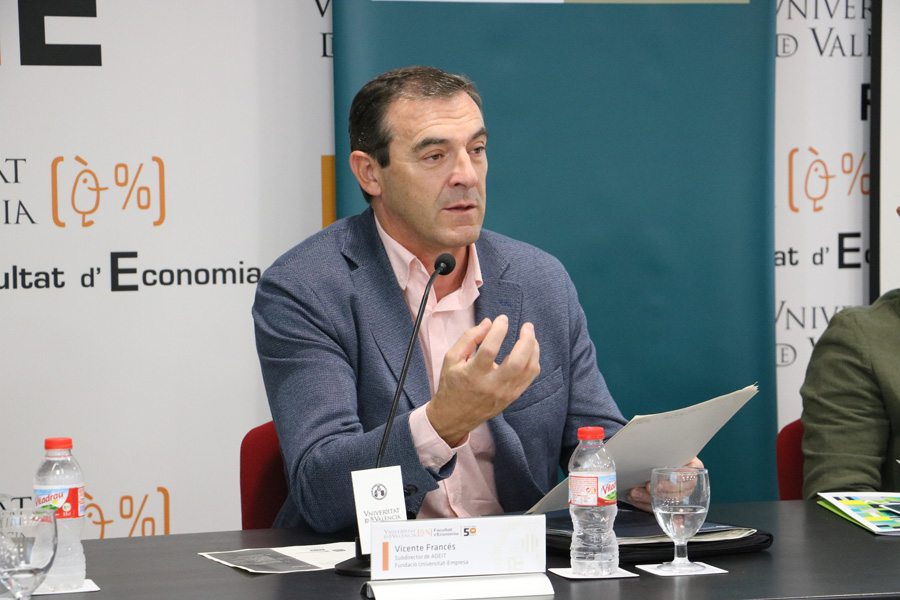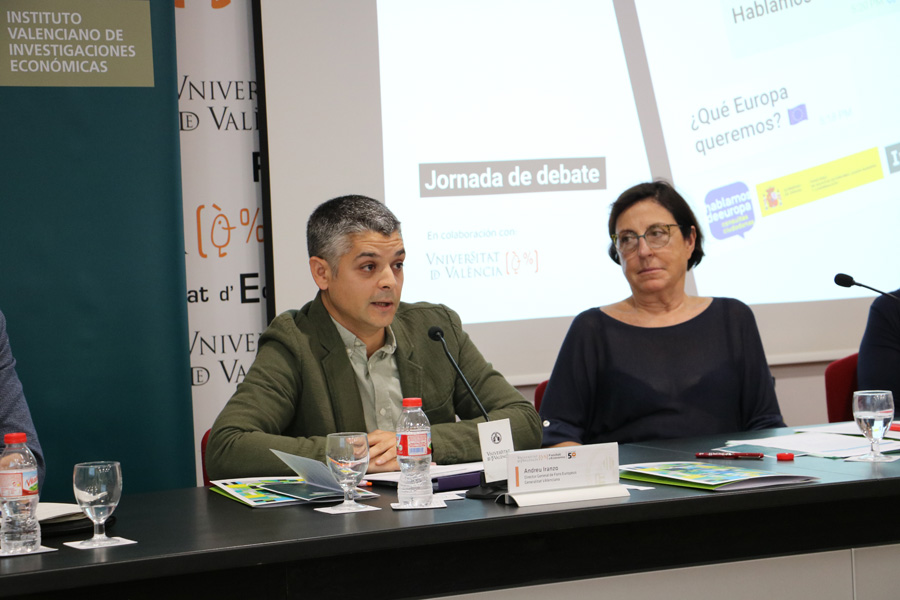News
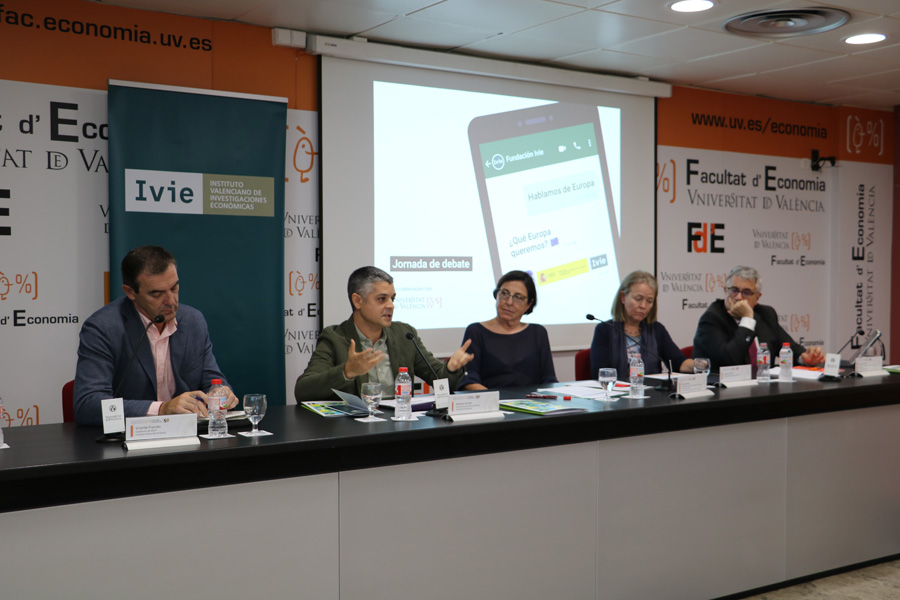
While young people in Spain positively view EU membership, they consider Spain’s influence to be limited
The seminar brought experts from the business, public administration and university communities together with university students to talk about the advantages of the EU, especially for employment prospects.
Over a hundred university students attended the debate organized by the Ivie Foundation titled, “Let’s talk about Europe: What kind of Europe do we want?”, aimed at discussing the benefits of EU membership. The speakers highlighted the opportunities provided by freedom of mobility for EU citizens, making it easy to study abroad in the Erasmus program or to receive work training in another member state. The debate, organized within the “Let’s talk about Europe” initiative of the Ministry of Foreign Affairs and aimed at encouraging discussion on the future of Europe, brought together public administration, business and university experts to share their views on the EU with university students.
The event was inaugurated by José Manuel Pastor, Dean of the Faculty of Economics at the University of Valencia, who highlighted the positive impact of studying abroad on a student’s academic record. For her part, Matilde Mas, Ivie Director of International Projects and organizer of the seminar, expressed her concern regarding the lack of connection EU citizens feel with Europe, especially younger generations.
During the talk, an interactive survey was conducted to determine participants’ opinions of Europe. Over 90% felt that EU membership was positive and that EU citizens achieved more together than separately. However, only 49% felt their opinion mattered in Europe and a mere 28% thought that Spain’s influence would increase in 2020. In other words, while young people believe that belonging to the EU is positive, they doubt that Spain is influential in the EU.
In the roundtable discussion that followed, Joaquín Aldás, Vice-Chancellor of the University of Valencia, commented that one of the greatest advantages of an Erasmus course was the improvement in a person’s employability, but, most importantly that it helped “a person to have an open mind and to not be fooled by populist lies.” Araceli Ciscar, CEO of the Dacsa Group, highlighted the advantages for firms, especially in the agriculture sector, to belong to a large negotiating bloc like the EU. She also reminded the audience that the high quality standards required by European legislation benefits consumers. Regarding the role of the EU in education and training, she emphasized that firms now need people who are willing to move to other countries for work and who have leadership qualities and can work in teams, not to mention the cross-cutting skills that are more easily attained after an experience abroad.
The Deputy Director of the ADEIT University-Enterprise Foundation, Vicente Francés, who also participated in the talk, agreed with Araceli Ciscar, adding that “64% of companies say that the experience and cross-cutting skills acquired abroad are taken into account when hiring.” Finally, Andreu Iranzo, General Director of European Funds of the Valencian Regional Government, stressed the importance of European funds for developing programs aimed at improving employment and training and combating social exclusion. In his view, part of the lack of interest in the EU can be explained by the slow pace of integration, which prevents people from seeing the advantages.


